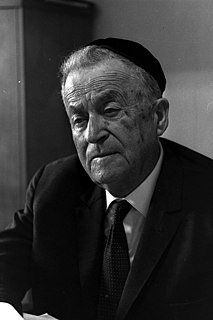Цитата Сьюзен Зонтаг
Солтер — писатель, который особенно вознаграждает тех, для кого чтение доставляет огромное удовольствие. Он один из очень немногих североамериканских писателей, все произведения которых я хочу прочитать и чьи еще неопубликованные книги я жду с нетерпением.
Связанные цитаты
Я бы дал им (начинающим писателям) самый старый совет в ремесле: читай и пиши. Читать много. Читайте новых авторов и уже известных, читайте людей, чьи работы в том же духе, что и ваши, и тех, чей жанр совершенно другой. Вы слышали о заядлых курильщиках. Писатели, особенно начинающие, должны быть постоянными читателями. И, наконец, пишите каждый день. Пишите о вещах, которые проникают вам под кожу и не дают вам спать по ночам.
Я научился писать, читая. У меня не было уроков письма. Это часть моего мышления как писателя-автора, чтение, но я также хочу привнести это в своих персонажей, которые тоже читают и думают. Есть замечательная цитата Вирджинии Вульф — она очень проста: «…книги продолжают друг друга». Я думаю, когда вы писатель, вы также, надеюсь, читатель, и вы привносите эти ранние работы в свою работу.
Вы должны быть очень оптимистичны, чтобы думать, что любая из ваших книг будет среди книг, которые выживут в очень долгосрочной перспективе. Я думаю, что если писателю посчастливилось остаться с несколькими книгами после его ухода, некоторые из которых все еще читаются, то он добился довольно многого.
Пришло время для восстановления и переоценки североамериканских мыслителей. Маршалл Маклюэн, Лесли Фидлер и Норман О. Браун представляют собой связанную триаду, которую я бы заменил Жаком Лаканом, Жаком Деррида и Мишелем Фуко, чьи работы принадлежат разоренной послевоенной Европе и чьи идеи плохо переносятся в англо-американскую традицию.
Мне особенно нравится место, где я работаю, потому что я родился, вырос и до сих пор живу в Бронксе. Я работаю в Бронксе, поэтому мне очень приятно работать в моем родном районе и работать с детьми, которые очень похожи на меня и могут видеть себя во мне. Моя собственная педагогическая философия заключается в том, чтобы познакомить их с книгами, которые они иначе не смогли бы прочитать, особенно с цветными авторами, авторами, чьи рассказы происходят из Нью-Йорка.
Кто были мои наставники в поэзии и литературе? Это вопрос мнения. Одни видят в моих книгах влияние авторов, чьих имен по своему неведению я даже не слышал, другие же видят влияние поэтов, имена которых я слышал, но сочинений которых не читал. И каково мое мнение? От кого я получил воспитание? Не каждый человек помнит имя коровы, которая давала ему каждую выпитую каплю молока.
Бог ежедневно использует миллионы безымянных влиятельных лиц в самых простых бескорыстных актах служения. Это учителя, чьи имена никогда не попадут в газеты, пасторы, которые никогда не напишут книгу, менеджеры, о которых никогда не будет рассказано в журнале, художники, чья работа погребена под слоями сотрудничества, писатели, чья сфера влияния составляет несколько десятков человек. люди, которые читают их блоги. Но они - армия, которая заставляет вещи происходить. Для них преданность сама по себе награда. Для них влияние — это непрерывный акт даяния, ничего более сложного.

































